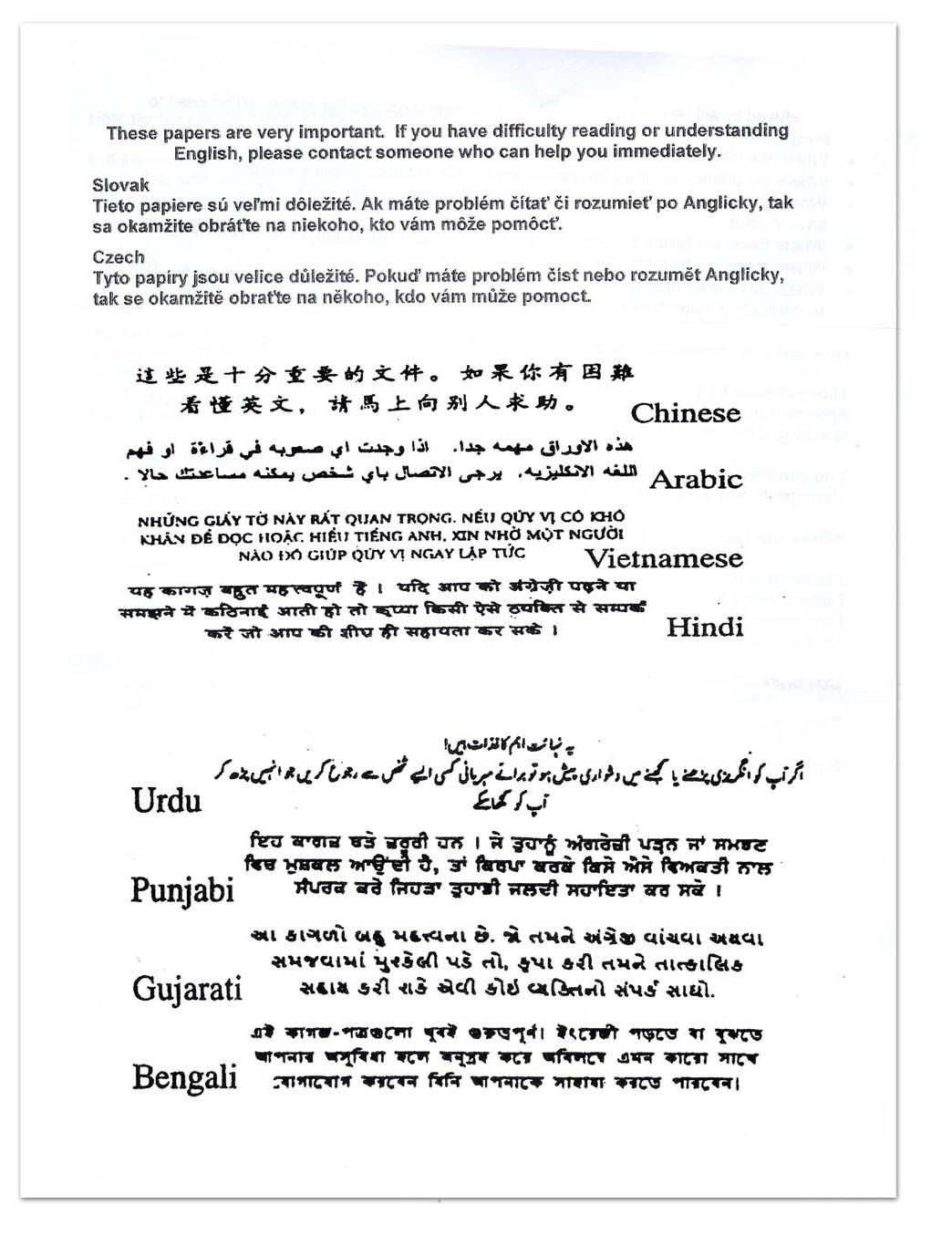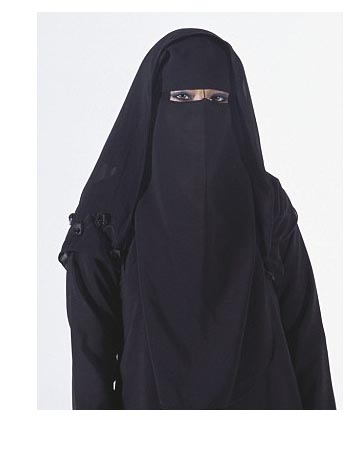24/08/2013

I am a white Englishman, born in London where, with no wind and stilled traffic, you might just hear the sound of Bow bells. I was taught English as a language, first to speak and then to read and write, and do tolerably well in my native tongue.
Thus, when my
local council, in the country of my birth, communicates with me, I really do not need an attachment to the letter (pictured, click to enlarge) - a personal letter addressed to me by name, from a named official â telling me in ten different languages what to do if I don't understand what I have been sent.
Neither do I need to see in the waiting room of my local hospital â an English hospital in an English city â garish leaflets printed variously in Hindi, Urdu, Punjabi, Gujarati and Bengali.
Nor do I appreciate the irony that on the Indian sub-continent from where these languages emanate, there are so many different languages that no single Indian can speak them all. English is an official language, the language in which most official documents are published â including Supreme Court judgements.
And there lies the cause of much of our ills and frustrations in this benighted country of ours. Much, for instance, has been said and will be said about the vexed subject of immigration, and there is rightly much resentment at the politicians who have so recklessly opened our borders and removed any vestige of effective controls.
But many of the problems we now encounter arise not entirely from the presence of incomers,
per se. We have dealt with waves of immigration before, and this country has a proud tradition of assimilating new people and absorbing their traditions. Not by accident has the curry transcended mere food and become an art form.
The problems so often come about by the pusillanimous attitude of officialdom to immigrants, their pursuit of "multiculturalism" and their unwillingness to insist that they conform to our standards rather than the other way around. These are the officials who so thoughtlessly and unnecessarily attach leaflets in ten different languages to personal letters to native born Englishmen.

From
the same stable, we get an insolent, 21-year-old "madam" turning up in a burkha at Blackfriars Crown Court, charged with intimidating a witness, and then refusing to remove her veil to allow her face to be seen.
Her barrister, Claire Burtwistle, then has the nerve to tell the court the woman is not prepared to lower her veil while men are in the room. "In front of women, it is not an issue", she says. "It is simply men that she will not allow to see her face".
The egregious Burtwistle goes on to suggest that a female police or prison officer could identify the defendant and confirm to the court that it is the same person as in the police arrest photos.
Then we get the "multi-cults" nibbling at the edges. Prosecutor Sarah Counsell not only accepts this insult but even consents to it, as does the craven policeman in charge of the case. He says he is "content" that he recognised the defendant while she was hiding in her burkha.
Fortunately, the judge is made of sterner stuff. He refuses to accept the affectation of this Muslim woman that her burkha is a religious necessity. It is not. Instead, he tells her that she must remove her veil before she can enter a plea.
Judge Peter Murphy said the principle of open justice overrode the woman's "religious beliefs" â or, in this case, politically-motivated affectation - and warned there was a risk a different person could go into the dock pretending to be her.
Unfortunately, the woman, resident in Hackney, east London, not so very far from where I was brought up, apparently cannot be identified for "legal reasons". This is a pity. Her name should be placed before the public so that she can be duly shamed for her insolence.
But at least she got a tongue-lashing from Judge Murphy, doubtless delivered in the politest and most gentlemanly of tones, as he told her: "It is necessary for this court to be satisfied that they can recognise the defendant". He added: "âWhile I obviously respect the right to dress in any way she wishes, certainly while outside the court, the interests of justice are paramount".
This is how it should be. In this our England, the individual conforms to the rules or takes the consequences. As for immigrants, they too must obey our rules, and they must have regard to the sensibilities of the settled population. Most of all, it is for English officials, appointed under British law and paid in pounds sterling by British taxpayers, to uphold the laws and customs of this country. We do not appreciate them changing the ;laws to suit the immigrants.
If they were more robust, and more conscious of the rights and sensibilities of the settled population, there would perhaps be considerably less friction. Mind you, it would have been better if our laws and customs been honoured in the first place, and our borders had not have been so recklessly opened. But, as long as there are men such as Judge Peter Murphy around, the battle is not yet lost.
COMMENT THREAD
 I am a white Englishman, born in London where, with no wind and stilled traffic, you might just hear the sound of Bow bells. I was taught English as a language, first to speak and then to read and write, and do tolerably well in my native tongue.
I am a white Englishman, born in London where, with no wind and stilled traffic, you might just hear the sound of Bow bells. I was taught English as a language, first to speak and then to read and write, and do tolerably well in my native tongue. From the same stable, we get an insolent, 21-year-old "madam" turning up in a burkha at Blackfriars Crown Court, charged with intimidating a witness, and then refusing to remove her veil to allow her face to be seen.
From the same stable, we get an insolent, 21-year-old "madam" turning up in a burkha at Blackfriars Crown Court, charged with intimidating a witness, and then refusing to remove her veil to allow her face to be seen.